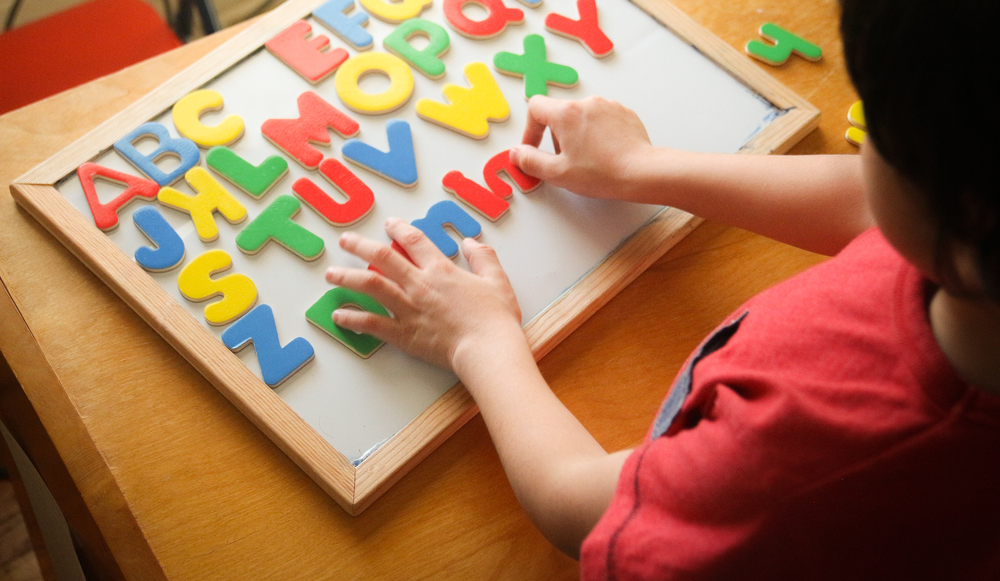
The New York Times recently published an article about how reading expert Lucy Calkins was pulling back from her literacy philosophy that children are “natural readers.” Calkins’ philosophy became the basis for the “Units of Study” method of teaching literacy, which is embraced by many schools.
Now Calkins is focusing her curriculum to include more emphasis on phonics. This focus leans into the new (or old) understanding of the science of reading. Here’s why more schools might be adopting the science of reading to guide their curriculum and how parents can help their children at home.
What is the Science of Reading?
The science of reading is what parents might assume it to be—scientific research related to reading and writing. These findings help guide how best to teach children to become proficient readers. Research from many decades and across many different studies has shown that teaching phonics, phonological awareness, comprehension, vocabulary and fluency all help children to learn how to read.
As 35 percent of fourth graders are reading fluently (at or above grade-level), reading proficiency is not the norm for many students. The reasons children don’t become proficient readers could be different for every child; some might have underlying learning disorders, others could lack access to books, etc.
About a quarter of schools use Calkins’ Units of Study methodologies for guiding literacy, and these students might not become proficient in decoding skills because they lack fundamental phonics and phonological awareness. For some students, it is possible that the way they are being taught to read is ineffective for their learning needs.
Calkin’s new focus on the science of reading and its emphasis on decoding, comprehension and vocabulary might help guide struggling readers and give them the proper strategies necessary for tackling difficult words that they might encounter. Parents might notice that their child’s school is placing more emphasis on phonics; while some students could catch on to phonics and identify sounds easily, additional practice might be needed for students to gain proficiency with decoding.
Here’s how to help children at home when the science of reading is the focus of the reading curriculum:
- Teach the alphabet early
- Read daily
- Help children as they read
- Read aloud to children and sound out difficult words together
- Skill and drill sight words
Teach the Alphabet Early
The alphabet is the code to reading. Children need to learn their letters and their sounds in order to be prepared to decode words for early reading. Decoding requires children to master the code, which is why it is so important that parents practice letters and sounds with children.
Toddlers and preschoolers can be taught to sing the alphabet song. Parents can also find toys and games that help children identify the letters and their sounds. Read books that focus on the alphabet, too. Once children master the alphabet and the sounds of each letter, they can begin to understand how each letter creates the word and the sounds within that word.
Parents also can help children practice letters by creating a matching game. Make two cards for each letter and place them face down. Take turns trying to make matches. When children flip over a card, encourage them to say the letter; ask them what sound the letter makes.
Some children love gadgets and technology. Both the App Store and Google Play offer apps for helping children to learn their letters and sounds. Parents can check out all the different app options to find the best game or lesson-based app for their child. Apps might be free to download, but parents also need to be mindful that some also could offer in-app purchases.
Children Should Read Daily
Whether children are reading a comic book, graphic novel, a magazine or just a favorite book, they should read daily. The best way for children to become better readers is by reading regularly.
Parents should make sure that children are reading books at the correct reading level, though. In addition, parents should let children choose the books they wish to read. Allowing a child to choose can help them find books that interest them and discover favorite authors, too.
Visit the local library to show children the vast selection of books that are available. Children also could be interested in signing up for a library card. This card is a fun rite of passage for some children and lets them feel a bit ‘grown-up’ as they check out their books. However, parents are still responsible for any incurred fees related to late or lost items.
Help Children as they Read
While some children could be fluent at phonics and decoding, others might struggle. Parents can read with children and help them sound out words that are more difficult.
Some words also can be tricky. Parents can help children learn sound patterns in words; for example ‘eigh’ sounds like ‘ay’ and ‘e’ at the end of a word makes other vowels say their name. These helpful rules and patterns can help children simplify the decoding of some words.

Read Aloud and Sound out Words
Not all children are at the age where they are able to read independently. Preschoolers might know their letters, but parents might still need to take the lead when reading daily.
While parents are likely fluent at decoding, they can encourage younger children to work to sound out simple words when reading aloud. A preschooler might be able to sound out small words like ‘cat,’ ‘dog,’ ‘bat,’ and ‘ball.’
Parents also can ask children questions as they read. Talk about the story and see if children can explain simple details or make predictions on what they think might happen next.
Skill and Drill Sight Words
Sight words need to be identified by sight. Children in lower elementary grades might be expected to memorize a list of sight words as part of the literacy curriculum. Help children master these words by practicing the list each night.
Parents can make flashcards to help children practice their sight words. Shuffle the cards to ensure that children aren’t memorizing the words in order.
Parents also could create sight word games. Play a match game by creating two cards for each sight word. Play sight word Go Fish by making four cards of each word and playing per the standard Go Fish rules.
Sight words help simplify reading, as children don’t have to think about sounding out these words. Once the child has mastered the sight words, they can identify the word immediately. This means that children can focus their reading efforts on decoding more difficult words in a book or within text.

Do Reading Programs Focus on the Science of Reading?
Many schools adopted the “Units of Study” literacy method, and children who learned how to read based on this instruction might need more guidance related to decoding and phonics. Can parents use reading programs to help their child become better at decoding?
Reading apps might be more focused on the science of reading and help children work on sounding out words to become more proficient at decoding. For example, Readability is designed for children to read stories and books aloud; the program offers a built-in reading tutor that is programmed with voice recognition software. This means that the tutor understands if a child struggles to sound out a word; if the tutor identifies a struggle, it provides help.
Readability can be ideal for children who need more help with decoding, as the program is leveled to ensure each child begins instruction at the correct baseline reading level. Children will not begin the program at a level that is too difficult.
In addition, Readability also emphasizes the importance of vocabulary growth. Every book in Readability includes a list of vocabulary words. Children can also tap any word in a story to hear the word’s definition or hear the word used in a sentence.
Parents whose child is struggling with phonics and phonetic awareness can explore the program to find out if it’s a good fit. Readability offers a free seven-day free trial period that provides children with access to all the program’s features—including the AI tutor. Sign up for a free trial and learn how Readability creates a lesson-based approach to reading that emphasizes the science of literacy and helps children to become proficient and confident readers.

 Español
Español